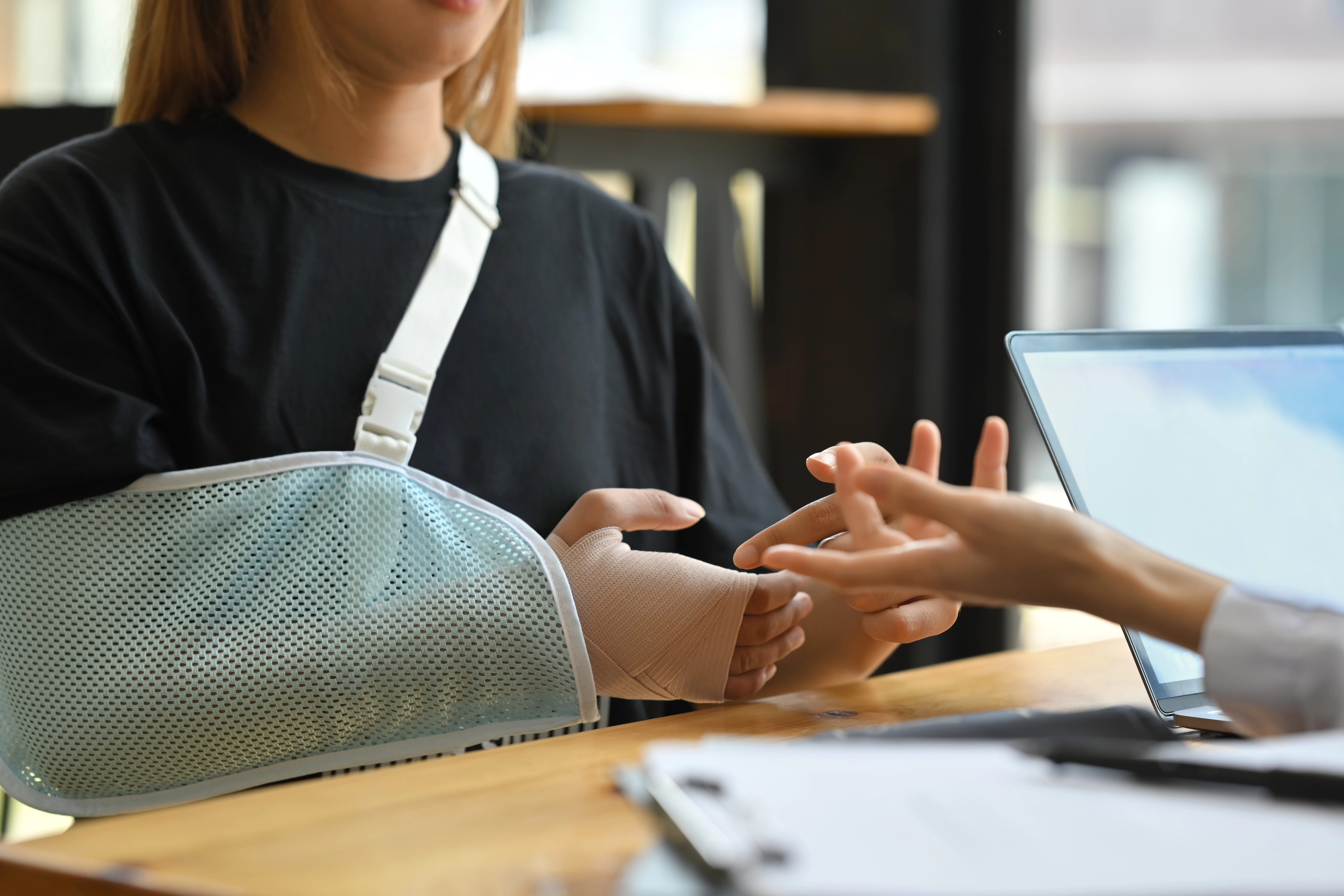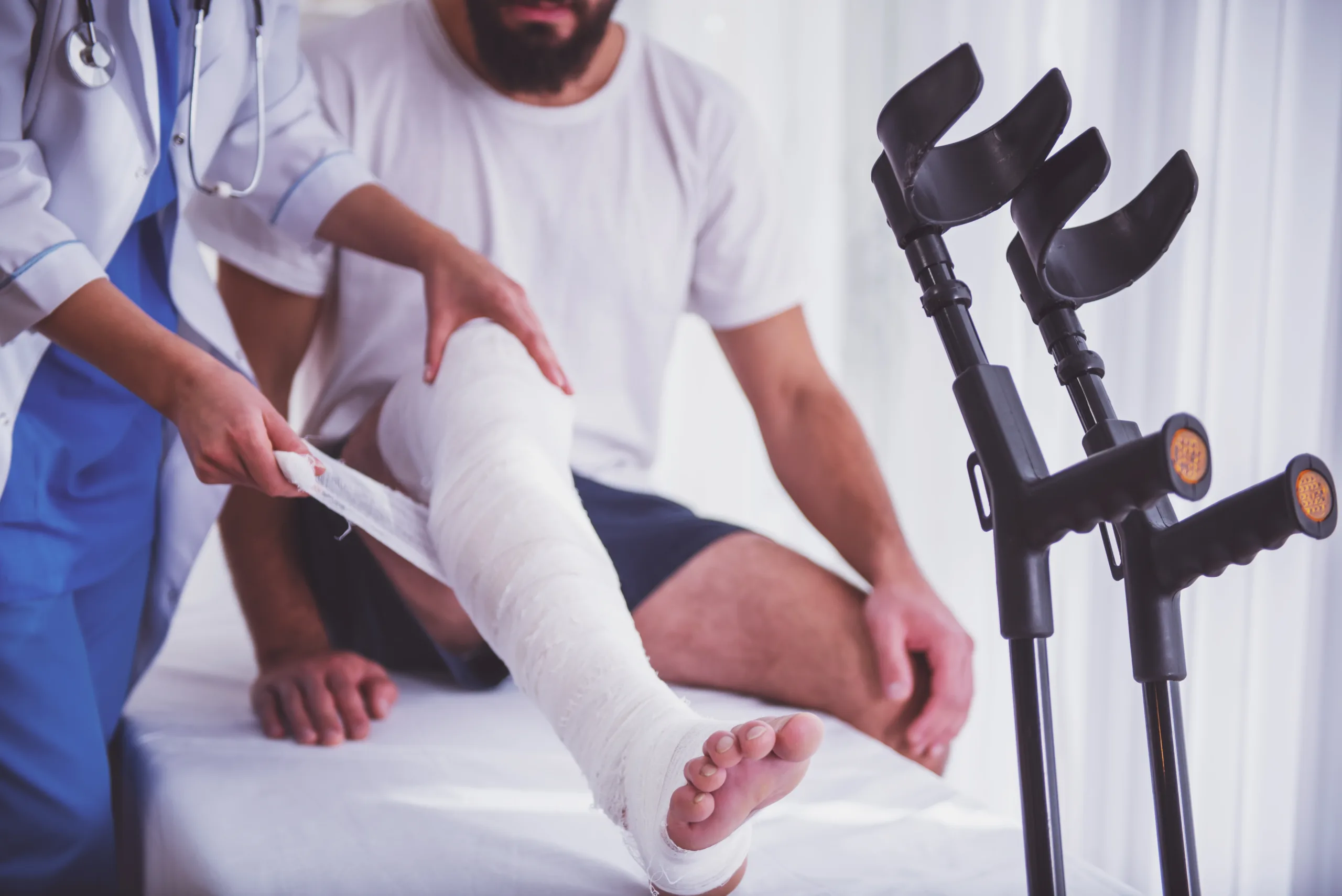Just How Important is Evidence in a Personal Injury Case?
Imagine getting into a personal injury situation and having no idea how to go about the problem. Understandably, such a scenario leaves you in a state of panic but panicking doesn’t help. The importance of accident evidence Monroe LA cannot be stressed enough. Evidence and injury claims Monroe LA can make or break your chances at compensation. Taking all of this in can be daunting, which is where a personal injury attorney Monroe LA comes into play.
Evidence plays a big role in the compensation you stand to get. A personal injury attorney Monroe LA can help you understand the steps for preserving evidence and can offer representation to get the justice you need. Continue to read further to learn more.
Quick Summary:
- Evidence is essential in personal injury cases to establish fault, demonstrate damages, and secure fair compensation. Without adequate evidence, it can be challenging to link the incident to the injuries sustained, weakening the case.
- Key types of evidence include medical records, eyewitness accounts, photos, videos, professional testimony, and official reports. Each plays a critical role in proving negligence, validating damages, and strengthening the claim’s credibility.
- In Louisiana, evidence is particularly important to meet the legal burden of proof in personal injury cases. Proper documentation, such as accident reports and medical records, helps create a compelling narrative, improving the likelihood of fair compensation.
How Important is Accident Evidence in a Personal Injury Case?
Evidence plays an essential role in personal injury cases, as it forms the foundation for establishing fault, proving damages, and securing fair compensation. Without strong evidence, it becomes challenging to demonstrate the connection between the incident and the harm suffered. From medical records to eyewitness testimony, each piece of evidence contributes to building a compelling case. This article explores the significance of evidence and its impact on the outcome of personal injury claims.
What are the Critical Types of Evidence in a Personal Injury Case?
In personal injury cases, the strength of your claim often depends on the quality and variety of evidence presented. Certain types of evidence play a vital role in proving fault, demonstrating damages, and securing fair compensation. Below are the critical categories of evidence commonly used to build a compelling case.
Physical Evidence
Physical evidence offers tangible proof of what happened during the incident, making it an indispensable component of a personal injury claim.
- Accident Scene Photographs and Videos. Photographs and videos taken at the accident scene provide visual documentation of the conditions at the time of the incident. They can reveal hazards, weather conditions, or other critical details that may establish liability.
- Damaged Property Documentation. Items such as vehicles, clothing, or other property damaged in the incident can serve as physical proof of the impact. Proper documentation, including repair estimates and before-and-after photos, helps demonstrate the extent of the damage.
- Physical Objects Related to the Incident. Items like defective products, broken equipment, or debris from the scene can directly tie the incident to the injuries sustained. These objects help establish a cause-and-effect relationship between negligence and harm.
Documentation
Written and recorded accounts offer essential insights into the circumstances of the incident and its aftermath. This type of evidence supports the narrative of the claim and bolsters credibility.
- Police and Incident Reports. Official reports created by law enforcement or first responders provide an unbiased account of the incident. These reports often include details such as the parties involved, witness statements, and any citations issued, which can be vital for proving liability.
- Medical Records and Bills. Detailed medical documentation connects the injuries to the incident and substantiates the claim for damages. Bills and treatment records also establish the financial impact of the injuries, such as medical expenses and ongoing care needs.
- Witness Statements and Testimonies. Eyewitness accounts offer firsthand perspectives of what transpired. Statements or testimonies can clarify disputed details, corroborate the victim’s account, and strengthen the overall case.
By gathering and preserving these critical types of evidence, victims can build a strong foundation for their personal injury claims, improving their chances of securing fair compensation.
What are the Key Evidence Collection Strategies?
Building a successful personal injury case requires effective evidence collection and preservation. Below are practical strategies to help strengthen your claim and improve your chances of obtaining fair compensation.
Immediate Actions
Taking prompt action after an accident is essential for gathering strong and reliable evidence. The moments immediately following an incident often provide the clearest picture of what occurred, from capturing the scene to collecting witness accounts. Acting quickly ensures essential details aren’t lost, strengthening your case and improving your chances of fair compensation.
- Documenting the Accident Scene.Capture photographs and videos of the accident scene, including damage, injuries, and surrounding conditions. These visuals provide a snapshot of the incident’s immediate aftermath and can be critical for establishing fault.
- Gathering Witness Information. Collect contact details and statements from witnesses who observed the incident. Their accounts can offer impartial perspectives that support your version of events.
- Seeking Medical Attention. Visiting a medical professional right away ensures your injuries are documented and treated properly. Medical records link your injuries to the incident, strengthening your claim.
Professional Documentation
Professional insights and formal reports provide valuable credibility to a personal injury case. They help clarify complex details and offer authoritative perspectives that strengthen your claim.
- Witness Testimonies Professionals such as accident reconstructionists or medical teams can provide authoritative opinions that clarify complex details about the incident or injuries.
- Accident Reconstruction Reports. These reports analyze the mechanics of the accident, such as vehicle speeds, impact angles, and contributing factors, helping to establish liability.
- Medical Opinions. Testimony from healthcare professionals can demonstrate the extent and long-term effects of your injuries, which is essential for determining fair compensation.
Role of Evidence in Proving Negligence
Evidence is essential for meeting the legal requirements to prove negligence in a personal injury case. It establishes key elements such as duty of care, breach, causation, and damages, forming the foundation of a strong claim. Without solid evidence, it becomes challenging to demonstrate liability and secure fair compensation.
- Establishing Liability. Demonstrating negligence requires showing that the defendant owed a duty of care, breached that duty, and caused damages. Evidence ties each of these elements together.
- Demonstrating Duty of Care and Breach. Official records, witness accounts, and professional testimony can illustrate how the at-fault party failed to meet their responsibility, putting others at risk.
- Showing Causation and Damages. Evidence such as medical records and accident reports connects the defendant’s actions to the injuries and other losses sustained, solidifying your claim.
Evidence Preservation Methods
Proper preservation of evidence is vital to maintaining its credibility and usability throughout the claims process. Ensuring that physical, electronic, and documented proof is securely stored strengthens your case and prevents critical details from being lost.
- Documentation Practices. Keep detailed records of all aspects of the incident, including expenses, correspondence, and incident timelines.
- Maintaining Detailed Injury Journals. Regularly update a journal describing your pain, limitations, and recovery process to provide a personal account of your experience.
- Preserving Physical Evidence. Safeguard any items related to the incident, such as damaged property or defective products, as they can serve as vital proof.
- Securing Electronic Records. Back up electronic evidence, including photos, videos, and communications, to ensure nothing is lost or corrupted.
Impact on Compensation
Extensive evidence is a decisive factor in determining the outcome of your compensation claim. It provides clear documentation of your losses, including medical expenses, lost wages, and emotional suffering. Strong, well-organized evidence ensures your claim is compelling and increases the likelihood of receiving fair compensation.
- Damages Documentation. Accurate documentation of damages is essential for quantifying the financial impact of your injuries and losses. This includes detailed records of medical expenses, such as bills, prescriptions, and treatment costs, which directly show the monetary burden of your recovery.
- Pain and Suffering Proof. Proving pain and suffering requires evidence that captures the emotional and physical toll of your injuries. Maintaining a detailed journal that describes your pain, recovery challenges, and impact on daily life can provide a personal and compelling account.
By following these evidence collection strategies, you can build a stronger case, effectively prove negligence, and maximize your potential compensation.
What is Louisiana’s Personal Injury Law?
Louisiana’s personal injury law is designed to provide compensation to individuals who have suffered harm due to someone else’s negligence or wrongdoing. Governed by a “comparative fault” system, it allows victims to recover damages even if they are partially at fault, though their compensation is reduced accordingly. Understanding these laws is essential for understanding claims effectively and ensuring fair treatment under Louisiana’s unique legal framework.
What is the Statute of Limitation in Louisiana?
In Louisiana, the statute of limitations for personal injury cases is generally one year from the date of the injury or accident. This means that you must file a lawsuit within this time frame, or you risk losing the right to seek compensation. The one-year limitation also applies to wrongful death cases, starting from the date of the victim’s death, but there are exceptions in specific circumstances, such as cases involving minors or the discovery of hidden injuries.
What is the Burden of Proof in Louisiana Personal Injury?
In Louisiana personal injury cases, the burden of proof lies with the plaintiff, meaning the injured party must prove their claim. To succeed, they must demonstrate by a preponderance of the evidence—that it is more likely than not—that the defendant’s actions caused their injuries. This involves establishing key elements: the defendant owed a duty of care, they breached that duty, the breach directly caused the injury, and the plaintiff suffered damages as a result.
Preserve Evidence and Get Justice You Deserve With A Personal Injury Attorney Monroe LA
Getting into an accident is serious business for all those involved. When in that situation, one might not even consider preserving evidence and would just do the first thing in mind. This is counterproductive since evidence is important when it comes to compensation. Evidence and injury claims Monroe LA are essential to achieve the justice deserved.
Our personal injury attorney Monroe LA at E Orum Young Law Personal Injury Attorney is equipped with knowledge on handling personal injury cases. An attorney can help gather and analyze information. Clients can better understand the importance of preserving evidence in personal injury cases. This knowledge can help them get the right amount of compensation.
Our attorney can also help clients with car accidents and 18-wheeler truck incidents apart from personal injury. Schedule a free case review today and get the rightful compensation with strong evidence.





